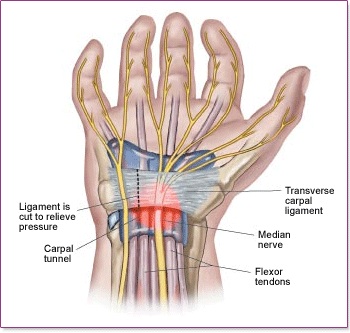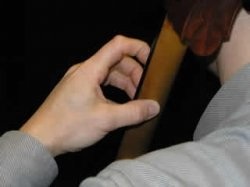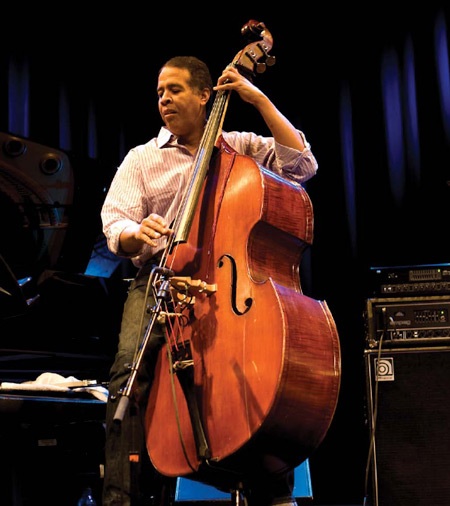| Author | Message | ||
| hammer
Senior Member Username: hammer Post Number: 844 Registered: 9-2009 |
I always wondered what people were referring to when they talked about the "piano-like" quality of the sound of Series Basses and their clarity of tone. Owning a number of Alembics, I couldn't imagine anything could really sound any better than my two Signatures or Europa. And then I purchased a Series I...and know I know of that to which they refer. My God...the tone is amazing and here I'm just referring to a pretty flat, unadulterated sound with the F1-X set pretty much flat and little going on with the SF-2. All this with a set of strings that the previous owner indicated had not been changed out in years. That doesn't mean that everything is perfect with the bass I purchased. I'm still adjusting to a neck that seems twice as chunky (thick as opposed to wide) as all my other basses. Unfortunately it seems that whenever I change necks it takes about 3-4 weeks to get used to the slightly different positioning of the hand, wrist, etc. and I end up experiencing temporary tendon/ligament discomfort. That's probably not a totally bad thing here as its allowing the other basses to get used. I'm also still getting used to the heft of the thing. It makes my Signatures and Europa's feel light and the fretless Rob Allen like a toy. Would be interested in recommendations for a better strap since the one I've been using with my other basses is just not going to work with this beauty. And yes, as soon as I get it cleaned up, I'll post some photos. That may take a while since free time is a bit short and I just wanna play the thing. | ||
| stephenr
Intermediate Member Username: stephenr Post Number: 162 Registered: 9-2014 |
Congratulations on your new bass! The pickups and electronics in the Series basses definitely have a character that is unlike the other awesome sounding Alembic bass models. Look forward to seeing the pictures. I use a 4" Moody leather strap for all my basses and highly recommend them, really comfortable leather right out of the box, no breaking in period. Moody used to make Alembic branded straps for the mothership but I believe they are no longer available. Only difference was the logo, though, you can still get the same straps from Moody. They are expensive but IMO worth every penny. http://moodyleather.com/ | ||
| ed_zeppelin
Advanced Member Username: ed_zeppelin Post Number: 242 Registered: 2-2010 |
You should never feel tendinitis. It means you need to adjust your left hand technique, and the only way to do that is take some lessons from a pro. Here is the carpal tunnel:  If you put your put your righthand fingers on your left wrist (like you're checking your pulse) and wiggle your lefthand fingers, you can feel those babies moving in there. If you bend your wrist, you can feel the tension increase, like a rope rubbing against a ledge. Eventually it frays, and nature provided extremely sensitive nerves there to tell you to knock it off. I'm primarily an upright bassist and one of the first things we learned was how to "lock" your left thumb as a cantilever so you maintain a straight line from your elbow, through your wrist to your knuckles. The thumb is directly opposing the middle fingers on the neck.  Here's Stanley Clarke:  We had to practice using just enough finger pressure to sound the notes, without squeezing, by using the thumb for leverage, rather than squeezing the neck like a baseball bat. The technique is slightly different for electric (because your thumb points across the neck rather than lengthwise) but the principle is the same. By using leverage with your thumb as the balance point you can keep your wrist straight and keep squeezing to a minimum. Note the straight wrists in the following. Here's Jaco Pastorius:  Jimmy Johnson (w/Stanley Clarke)  Another example is the amazing Delano Mills:  I hope this helps. If you continue to feel tendinitis see a doctor. | ||
| rv_bass
Intermediate Member Username: rv_bass Post Number: 181 Registered: 8-2014 |
I was amazed at the clarity of tone and sensitivity of the Series pickups compared to the activator pickups in my Orion (which still sounds great!). I use a 2.5" Levy's padded strap for my Series I bass, they also come in wider sizes. Congrats on the Series bass purchase, have fun! http://www.sweetwater.com/store/detail/PM32Blk | ||
| hammer
Senior Member Username: hammer Post Number: 845 Registered: 9-2009 |
The funny thing is I never experience any tendinitis after getting used to the neck of a bass I am playing. It's only during the "breaking in" period and when the neck of the bass is different enough to require a change of position. Never experienced a thing when I got my first Alembic (a Distillate). Nothing at all with my Sign. Custom or Standard. It's just been with the 6 string Europa and this Series bass that I've had any problems. Stephen, I will definitely check out the Moody Straps. | ||
| jazzyvee
Senior Member Username: jazzyvee Post Number: 4891 Registered: 6-2002 |
Ed, I had a really good laugh about that. I can't see how my name can even be included in the same posting as these bonafide greats. My technique is more than likely a by product of something else I'm trying to do such as keeping the bass from sustaining or sounding notes that I don't want. i'm glad you think I'm doing something right. I don't have any pain when playing so I guess I have worked out what works for me. Sometimes I find that playing a low C on the B string or low F on a short scale bass causes my left wrist to arch in a way that doesn't feel comfortable so I find myself using my thumb to fret those notes depending on what I'm playing either side of the note. | ||
| hammer
Senior Member Username: hammer Post Number: 846 Registered: 9-2009 |
Just wondering...were most Series basses from the early 1980s made with necks that were extra thick or just the one I purchased. My '83 Distillate had a much less chunky neck. | ||
| edwardofhuncote
Senior Member Username: edwardofhuncote Post Number: 809 Registered: 6-2014 |
Sounds like you're well into the bonding process with the new/old Series bass Brian. Looking forward to the pictures. Sounds crazy to say, (since I have a Custom Build in the queue) but I still hope to one day own a true vintage Series I. I was so close one time. | ||
| jazzyvee
Senior Member Username: jazzyvee Post Number: 4892 Registered: 6-2002 |
I have a 1980 series I short scale bass and the neck is far from chunky in fact is is 4mm narrower at the nut than my 2001 SC Deluxe and is much easier to play. | ||
| stephenr
Intermediate Member Username: stephenr Post Number: 164 Registered: 9-2014 |
My take on chunky was that it referred to a neck profile that is rounded and deep front to back. My 78 Series bass definitely would fit my description of a chunky neck. It is very narrow overall, almost no change in width between the first fret and where the neck meets the body. A number of newer Alembics I have played had necks with a profile that was much flatter in the back and gradually wider as you went up the neck. | ||
| keith_h
Senior Member Username: keith_h Post Number: 2356 Registered: 2-2005 |
My guess is it is the difference between the classic taper and comfort tapers. The classic taper has very little difference in width up and down its length. The comfort taper is more like a Fender neck in that the heal is quite a bit wider than at the nut. In fact my comfort taper necked Alembics are very close to the same measurements of my Jazz Bass. I have limited Gibson knowledge but would guess that my classic taper necks are similar to the dimensions found there. Anecdotally newer Alembics seem to favor the comfort taper where as the older Alembic favored the classic taper. Keith | ||
| hammer
Senior Member Username: hammer Post Number: 847 Registered: 9-2009 |
Stephen hit the nail on the head so to speak. Your take is exactly what I have experienced when I compare the necks of my more recent basses to this one. | ||
| carsbybigd
Junior Username: carsbybigd Post Number: 28 Registered: 8-2014 |
Congrats on the Series 1. I have a medium scale Series 1 1980 [and is 150+ numbers away from Jazzyvee's] and the neck to me isn't as "Slim " [ from fret board to thumb side]as other basses I have owned. I also play a Modulus Q5 and it has a "slim" neck compared to my Series 1,but than again it also has 5 strings so it is wider.Give your self some time playing it. I like both of my basses but I tend to get lost on my 5 string a bit.You will get used to it. | ||
| sonofa_lembic
Intermediate Member Username: sonofa_lembic Post Number: 117 Registered: 5-2014 |
Like Alembic says, each bass is unique, and that certainly applies to the neck carve. There is no set rule for neck carves since back in the day, it really depended on who carved the neck and whether he was rushed, stoned, in training, etc. Today, people specify their neck dimensions, so buying a used bass can still be a product of someone's preference. I do agree that the necks being carved presently have a flatter back and tend to taper in thickness more from the body to the nut. I have always preferred the neck to have the traditional D shape and be almost as thick at the body as the nut. It leads to more stability of the neck over time, and less having to fiddle with truss rod adjustments in different climates and weather. I just picked up a 1980 Series I medium scale with a small body, and it has the ideal neck feel for me. It also balances surprisingly well. This one is a true gem. |